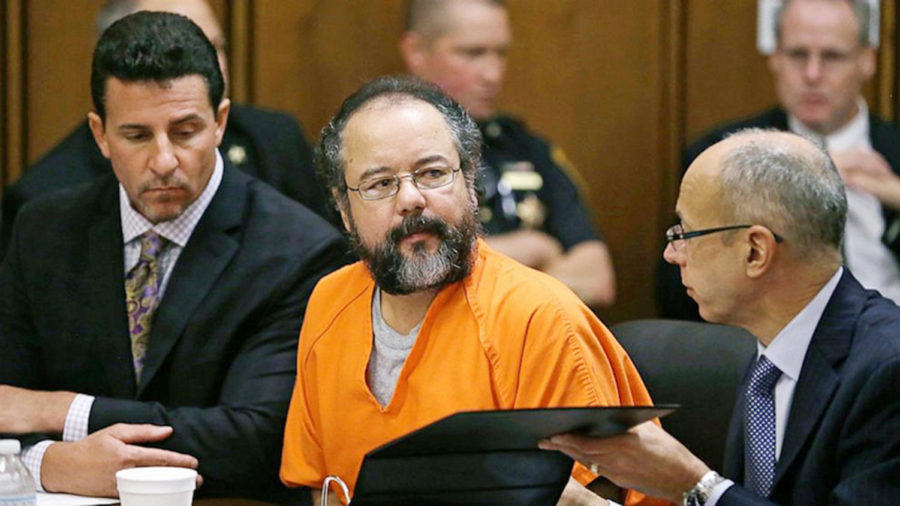Yetley: Ariel Castro deprives victims, country of justice
Ariel Castro committed suicide in his jail cell Tuesday, Sept. 3. Castro was convicted of kidnapping after he held three women hostage in his home.
September 6, 2013
Ariel Castro was found dead in his jail cell Tuesday night. A prison guard found the body after Castro hanged himself by the neck. He was taken to a hospital and later pronounced dead.
As a rapist, kidnapper and generally horrific person, Ariel Castro was someone whom the public wanted to rot in jail and receive the justice he deserved. Now the American public, the victims, the family of the victims and anyone else with an opinion about this man are deprived of their sense of justice. Although no one person would have been able to personally witness Castro struggle with life in captivity, it is nice to be reassured of the balance of the world.
Ariel Castro pleaded guilty in July to 937 different counts of kidnapping, rape and other offenses after three women and one small child escaped from his home in Cleveland. These women were kept locked in his home for 11 years. The small child was 6 years old when she escaped; Castro fathered the child with one of the women he kidnapped and raped. He was sentenced to life in prison plus 1,000 years so that he would never have a chance at parole.
While in jail, Castro was put on protective watch based on the publicity of his case. He had a cell to himself and a guard that would check on him every 30 minutes. The state moved him from Lorain Correctional Institution to a prison in Orient, Ohio, for protection purposes.
Castro’s defense attorney, Craig Weintraub, said the jail denied him a psychologist. Officials said they did find a suicide note and confession in his residence in May. The prosecutor, Timothy McGinty, called the note a narcissistic attempt for pity.
During his trial, Castro said there were moments of harmony in their “home” and that he was not a monster. Contrary to his own belief, kidnapping three women, locking them in a room for 11 years, starving and beating them, raping them at his own leisure, impregnating one of them, and forcing her to give birth without medical attention does in fact make him a monster.
Michelle Knight, one of the women Castro kidnapped, said at the trial that Castro had put these women through hell, and now he will burn in hell. It is a disappointment to many that now he cannot suffer through prison first.
This statement by Knight prompted him to claim that he lived a normal life and had a consensual relationship with these women. This further proved McGinty’s comment that Castro is narcissistic, so narcissistic that he believed that these women actually wanted to be there with him.
It is generally agreed jail has two purposes: to protect the community from the offender and to rehabilitate the criminal so that they do not reoffend. At least the first goal was accomplished: Castro will not be returning to the community to further harm anyone else.
However, he will not be rehabilitated. The rehabilitation is the challenging part for criminals. They don’t want to believe they are wrong, and admitting to wrongful acts or that a personal way of life is wrong is hard for any individual. As a result of his suicide, Castro will skip the hard part.
McGinty said it best: “This man couldn’t take, for even a month, a small portion of what he had dished out for more than a decade.”
In his situation, suicide was the easy way out, the coward’s path. Castro showed his true and final colors in his decision to avoid the justice he truly deserved.
Whatever is beyond death, whether it is heaven, hell, purgatory, nirvana or reincarnation, we as humans can’t see or predict it. We miss out on witnessing the justice done to this monster. Although some may sense justice through their beliefs, it is not as satisfying as seeing it for oneself. Castro deprived his victims and the U.S. legal system of much-needed justice.

















